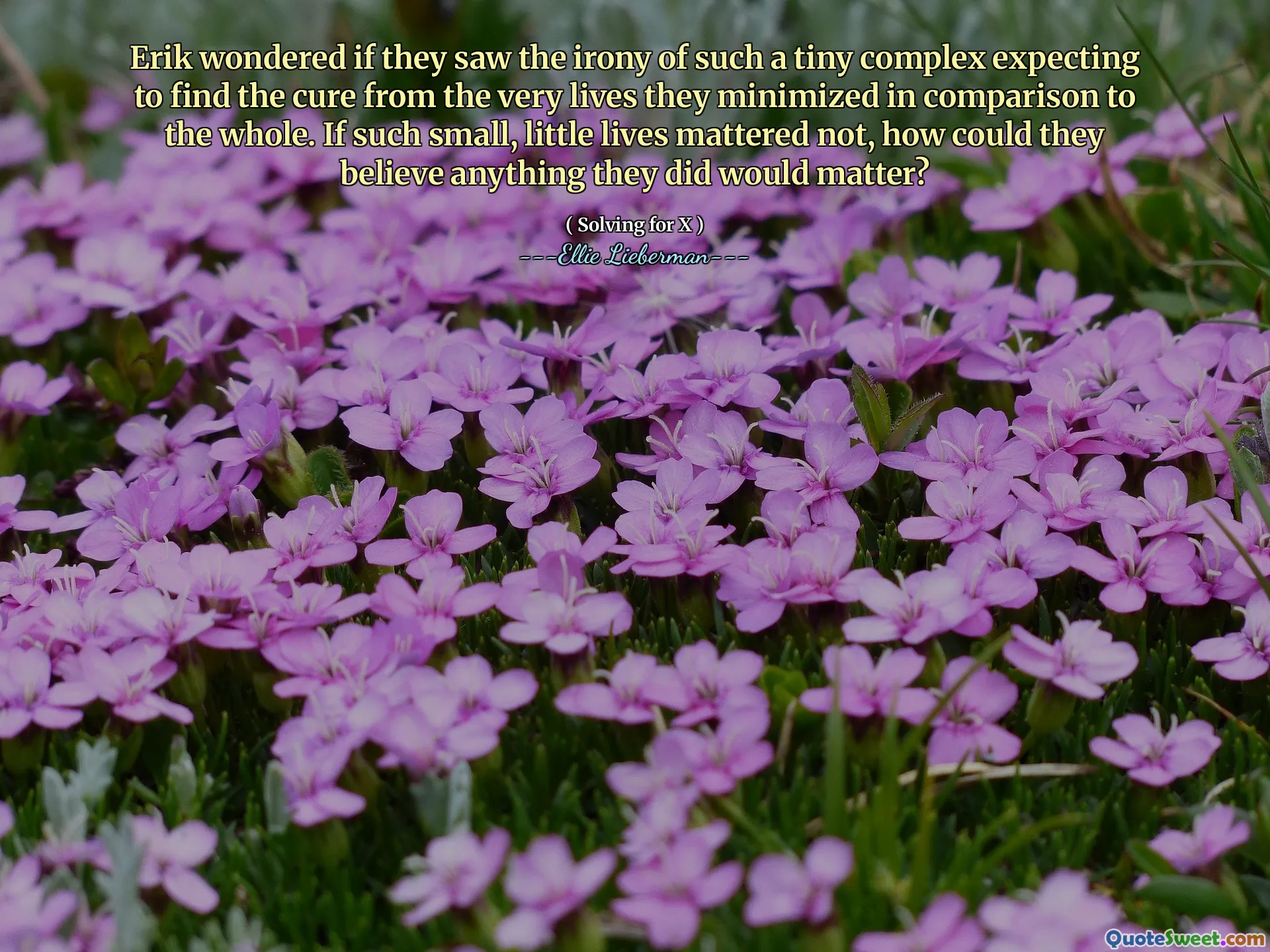
Erik wondered if they saw the irony of such a tiny complex expecting to find the cure from the very lives they minimized in comparison to the whole. If such small, little lives mattered not, how could they believe anything they did would matter?
This quote poignantly highlights the paradox of devaluing the individual while relying on the collective or minute aspects of that very individual for significant outcomes, such as finding a cure. It brings to tension the irony inherent in scientific and societal endeavors that depend on what they often overlook or diminish. The notion that small or seemingly insignificant lives are minimized "in comparison to the whole" speaks to how systems or complexes—be they medical, social, or institutional—can sometimes disconnect human elements from broader goals, forgetting that the "whole" is fundamentally composed of those very lives. Erik's reflection prompts us to reconsider the ethical and philosophical foundations of valuing life. How can meaningful or transformative achievements be expected if the starting point is a disregard or belittlement of the very subjects involved? This calls for humility and awareness in scientific pursuits; a reminder that care, respect, and acknowledgment of every individual life form the cornerstone of genuine progress. It challenges the reader to see beyond reductionist views and to recognize interdependence. The power embedded in this reminder is universal—it crosses disciplinary boundaries and touches on the essence of how we perceive value, action, and consequence. Ultimately, this quote encourages a reorientation toward empathy and recognition that has both practical and moral implications for how we approach challenges, especially those involving health and the intricate relationship between individuals and society at large.






